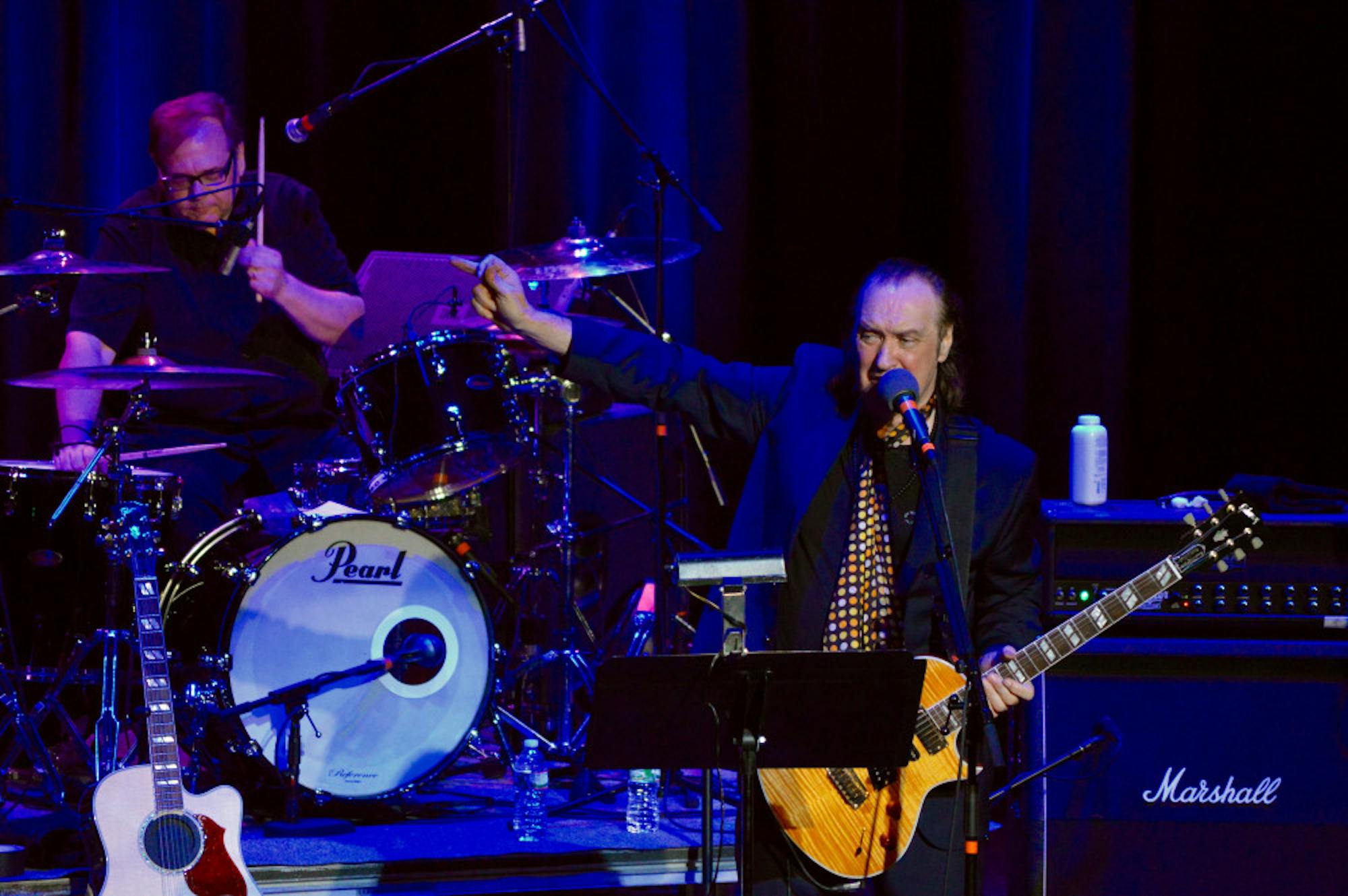On the evening of Oct. 8, Wilbur Theatre did not have a full house. The chitchatting got a little louder as 8 p.m. approached, and the waitresses became busier passing out beer cups. Looking around the mezzanine, the almost uniform grey hairs suggested how nostalgic the event scheduled for that evening was.
This concert was part of the 2015 tour of Dave Davies, the former guitarist of The Kinks. The tour was arranged shortly after the 2014 release of his newest album, “Rippin’ Up Time.” There has been a considerable amount of news coverage -- including in Rolling Stone -- that indicates The Kinks may reunite sometime this year, but the decades-old Dave and Ray Davies sibling feud did not seem to yield to this strong call for a reunion.
A local band, which brought a vibe of last-century pop-rock, opened for Davies. The throwback was commendable, but the members did not have much chemistry; the guitarist seemed stressed, the solo was predictable and the harmony between the female and male vocalists was unsatisfying. An hour was too long for this opening act.
Following a brief break, Dave Davies walked onto the stage while his band played the intro to his album's opening number. Despite his age, Davies still attempted to be as cheerful and energetic as possible. A male voice in the front of the mezzanine responded to his stage presence with applause and a loud “We love you, Dave!”
The old Kink started off by playing a series of his new solo songs. As the key person who weaved hard rock into The Kinks’ music -- such as the classic hit “All Day and All of the Night” (1965) -- Davies has been more specifically honing his hard rock craft since going solo. Yet with over 30 years of being a Kinks member, the band's musical imprint on Davies cannot be easily diminished.
Dave’s voice was not at its best this night. Regardless, the show reached its climax when Davies performed two Kinks classics, “I’m Not Like Everybody Else” (1966) and “Tired of Waiting for You" (1965). Even though it reminded the crowd of the band's prime, it contrasted hugely with the original production, in which the youthful band's “I’m Not Like Everybody Else” served as a claim to power for the younger generation. Davies then proceeded with a performance of his “Flowers in the Rain” (2002), and dedicated the performance to his brother Ray in spite of their long-standing conflict. The entire acoustic segment showed more of Davies' personal side than the appealing rock n’ roll hits.
The concert pushed onward smoothly until there was a dramatic shift into strange territory. Davies performed a song about meeting a karaoke singer, the lyrics of which plainly told a dry story. With a chorus containing the odd, heavily repeated refrain, “For he was the king of karaoke,” Davies confused the entire audience. What’s more, an unknown lady who seemed to be Davies' friend happened to come up on stage, but did not participate in the music; she simply danced awkwardly and, without explanation, left the stage after the song concluded.
Davies wrapped up the main performance with “Where Have All the Good Times Gone" (1965), then encored with two more Kinks hits -- including another performance of “I’m Not Like Everybody Else.” After the curtain call, Davies hugged all his supporting musicians, after which the guitarist in the touring band left the stage exhaustedly.
Unfortunately, The Kinks were underrated in the '60s -- and are even more so among today's college-aged people -- but The Kinks were eventually recognized as one of the most significant bands of the British Invasion, because they were one of the pioneers of concept albums. Subsequently, their style profoundly influenced the British Invasion's second wave. Yet, The Kinks’ official website shows little sign of thoughtful maintenance; Davies' personal one is not much better. The Kinks were simply not lucky enough to be born -- and famous -- in the right generation. They were sandwiched between the Beatlemania and the rebelliousness of the Rolling Stones; they were overwhelmed and thus overlooked.
The song with which Davies closed his official set was almost allegorical, and posed a sad rhetorical question for all Kinks fans: Where have all the good times gone? No one would be able to relate the Dave Davies on stage at Wilbur Theatre with the Davies in “Village Green” (1968) -- the one who sang along with his brother Ray with the clear, compelling harmony. It was not a delightful comeback for most Kinks fans, but who was there to blame? The '60s have long been history, and The Kinks seem so as well.
Corrections: The original version of this article stated that "Where Have All the Good Times Gone" was written and recorded by Van Halen in 1982. It was in fact written and recorded by The Kinks in 1965. The original version also stated that "Flowers in the Rain" was a cover of a 1967 recording by The Move. It was in fact written and recorded by Dave Davies in 2002. "I'm Not Like Everybody Else" was initially labeled as a 1994 recording by The Kinks, though it was in fact recorded by the band in 1966. The original version of the article also named Dave Davies as The Kinks' frontman, though Ray Davies was in fact the person in this position. The Daily apologizes for these errors.
Dave Davies showcases aging music at Wilbur Theatre

Dave Davies, guitarist and vocalist of The Kinks, performs at The Wilbur Theatre on Thursday, Oct. 8.





